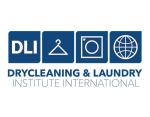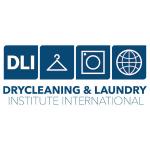CHICAGO — Business insurance is a topic most owners would rather avoid if they could, but having the right safety net in place can make events that would otherwise be disasters for your business into inconveniences, or at least survivable incidents.
Knowing the right policies to have in place can be a daunting task, so to help owners decide what works best in their particular cases, California insurance agency owner Wallace Wong recently conducted a webinar titled “Insurance Needs for Small Business.”
The webinar was hosted by the Service Corps of Retired Executives (SCORE), an organization where Wong serves as a mentor.
In Part 1, we examined the general needs and specific cases where business insurance can save money or save a business, and in Part 2, we looked at general liability policies, what Wong says is the most critical type of insurance. Today, we’ll conclude by exploring the other three types of insurance Wong believes all small businesses should have: property, workers comp and commercial auto.
Protecting Your Property
When it comes to property insurance, Wong stresses that it goes beyond the building in which a business such as a drycleaning company may be located.
“Property means real estate, if you own it,” he says, “but it also means your physical assets. Your laptop, computer, equipment, tables, chairs, cabinets, shelving, and those kinds of things.”
This is an area where, if a business owner is aware of the different types of insurance available, they could save themselves a lot of hassle when it comes time to make a claim.
“This type of insurance can be set up to payout based on either replacement cost or actual cash value (ACV),” Wong says. “You always want replacement cost, which is just what it sounds like — the cost to replace something. Let’s say you’re a photographer. You buy a camera for $1,000, and it gets stolen, lost or destroyed. Replacement insurance will pay you $1,000 — that’s the replacement cost.”
This would not be the case with ADV policies.
“ADV is replacement cost minus depreciation,” Wong says. “Let’s say you have a $1,000 camera, but he used it for five years. Again, it gets lost, stolen or destroyed. With ACV, insurance will depreciate the usage of it. So, after five years, it depreciates $500, so insurance will pay $500, which is the actual cash value.”
Wong urges owners to always try to get replacement cost for business property.
“When you’re out there shopping for insurance, ask your agent if this is replacement cost or actual cash value, because ACV is cheaper,” he says. “There are a lot of insurance agents who are, let’s say, less than scrupulous, who might sell you something because they know it’s cheap and you will get it. But in the end, when you file the claim, that is when the pedal hits the metal. If the insurance is cheap, be sure to ask all the questions.”
While property insurance covers physical damage, Wong says business income coverage pays for lost revenue during the restoration period. He gives the example of one of his clients who owns a pottery store who keeps large pieces, three- or four-feet tall, too big to fit in the store displayed in the parking lot.
“One day, a customer drives into the parking lot, hits the gas instead of the brake, and knocked out an entire wall of pottery, destroying their entire inventory,” he says. “Insurance saved the day. It covered their business property — their inventory of about $50,000 worth of pottery — and it also covered their business income, as well.”
The breakdown in this case is that $50,000 was covered by business property insurance — the cost of the inventory only, not the profit the company could have made the company. The business income is calculated by looking at receipts from prior months to determine what the profit would have been, which was covered by the business income component of the policy.
“So, insurance made a bad day into a not so bad a day,” Wong says. “It covered the replacement of the inventory and their lost income, because the inventory was damaged and they could not sell it anymore.”
Equipment breakdown is also a facet to be considered with property insurance. This is coverage for temporary and permanent replacement of equipment that fails unexpectedly.
“Let’s say you run a restaurant and your oven goes out and you can’t cook. Or an ice cream store and the freezer went out. Insurance will cover the equipment breakdown,” Wong says.
There is, however, an important element to these claims.
“The equipment needs to fail unexpectedly,” Wong says. “If the insurance company finds out the oven is 50 years old and was never maintained, they’re going to deny the claim. If you bought the freezer second- or thirdhand and it leaked and barely worked, that’s a maintenance issue and insurance is not going to cover that. If your car won’t start and you file a claim, and the company finds out you haven’t changed the oil in 10 years, that’s a maintenance problem.”
Workers’ Compensation
One type of insurance that is mandatory in most of the United States is workers’ compensation, which is coverage for employee injuries.
Wong says that almost all states require this type of insurance (Texas is the only state where it’s optional). This is insurance that will provide medical benefits and wage replacement for employees who have a job-related illness or injury. Specific requirements vary from state to state.
“The states mandate a net rate on premiums, so you don’t have to really shop around for this type of insurance,” he says. “It’s based on the payroll you pay in the type of work you do.”
The rate Wong pays for his employees in his insurance business, he says, is lower than those paid by tree-trimming services or skyscraper window-washing services. “We do computer work. The worst my employees will get are carpal tunnel issues,” he says.
One of Wong’s clients, a restaurant, filed a claim when a worker received a nasty cut while slicing meat.
“Workers’ comp saved the day here,” he says. “It paid for medical bills, rehab, cleaning the equipment and paid for the employee’s salary while he couldn’t work so he could still feed his family, get well sooner and get back to work.”
Commercial Auto Coverage
The final type of insurance Wong discussed is coverage for the vehicles owned by a business, and there are two components to this. Auto liability covers damage and injuries done to others by the company’s vehicles, and physical damage covers damage to you’re the company’s vehicles.
“The difference between commercial and personal auto liability is more coverage,” Wong says. “Commercial auto can go all the way up to $1 million, and personal liability the most you can go is $500,000.”
Because it’s more expensive, many companies ask if they actually need it over personal auto liability.
“Let’s say you don’t have an obvious type of business,” he says. “If you’re a consultant, for example, can you drive your personal vehicle? The short answer is, yes, you can. But when I say obvious, let’s say you’re a landscaper or some kind of contractor and you have ‘Joe’s Plumbing’ on a Ford F-250. That is going to be obvious, and for that, you will definitely need commercial auto.”
Another thing to keep in mind, Wong says, is that commercial auto coverage only covers the vehicle itself.
“I’ve had this come up a lot with some of the clients who have commercial auto with me — plumbers, contractors and the like,” he says. “The equipment you would have inside your vehicle is not covered in commercial auto. Commercial auto, just like personal auto, covers only the damage and repair to your vehicle if you get into an accident.”
Your Specific Case
Wong notes that there are many differences when it comes to insurance, based on location, field of work and other factors.
“Keep in mind,” he says, “that every state has its own rules and policies and laws that govern what you can and can’t do with insurance.”
He also warns that owners make sure what they think is protected by insurance is actually protected.
“The one thing you need to realize, and I get it every day,” he says, “is that insurance covers a specified loss. If it is not listed there, or if there is an exclusion, it’s not covered. That’s the difference between a good policy and a cheap one.”
For Part 1 of this series, click HERE. For Part 2, click HERE.
Have a question or comment? E-mail our editor Dave Davis at [email protected].









































































